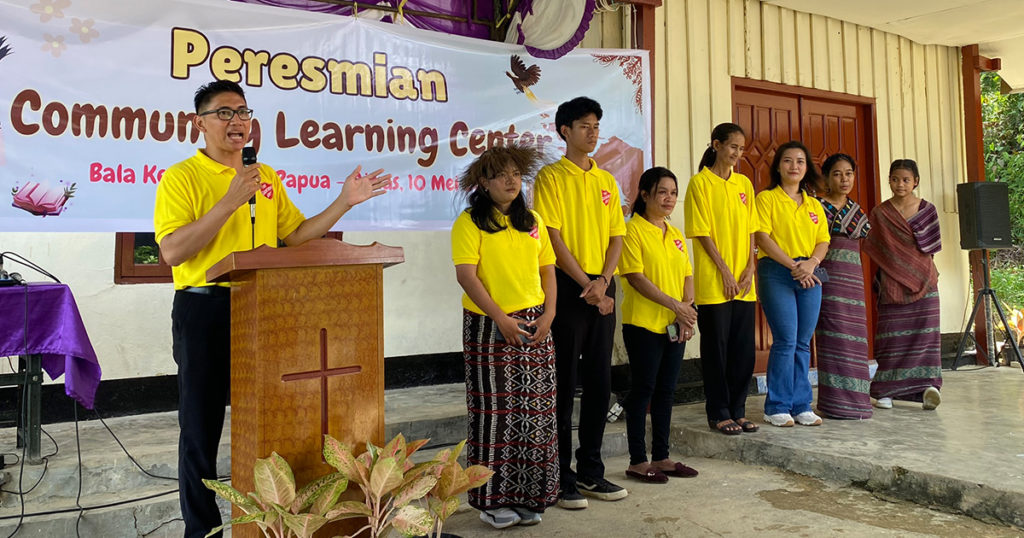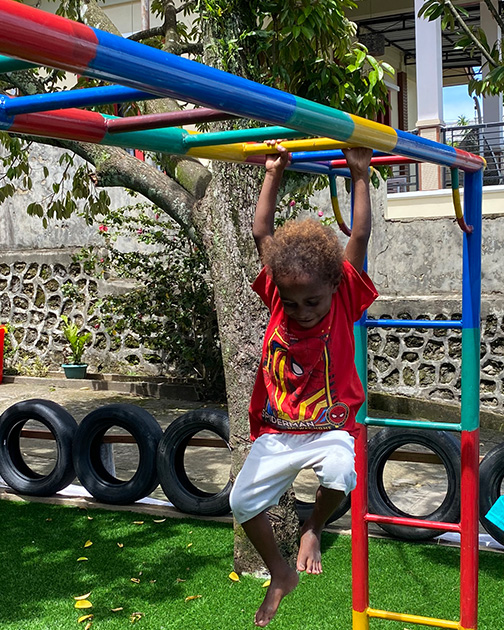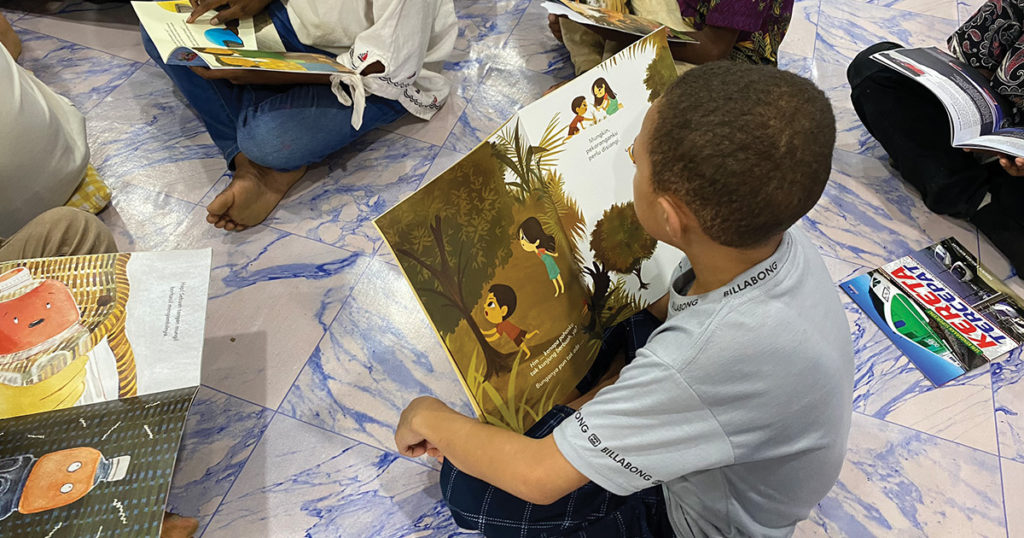Indonesia Community Learning Center After-School Programs
The CLCs are central to Indonesia Salvation Army’s outreach, mission and witness.
The Salvation Army in Indonesia has a dream: to support impoverished children in West Papua by providing access to education and other basic services, improving their well-being, development, and odds of breaking out of the cycles of extreme poverty.
The Salvation Army took a large stride towards achieving that dream on May 9, 2024. The new Community Learning Center (CLC) after-school program was officially launched at the corps in Sorong, West Papua. The new Aimas Corps CLC was officially launched a few miles away on the following day.
The Salvation Army World Service Office, based in Alexandria, VA, supported the launch of these two CLC afterschool programs. Combined, they serve nearly 180 children in need, ages four through 12. Many of them are unable to go to school and cannot read or write.
Obstacles to Learning
Members of the Kokoda tribe make up most of the children participating at the Sorong Corps CLC. The Kokoda are a community of displaced migrants originating from an area in West Papua several hundred miles to the southeast of Sorong. Facing extreme discrimination in their homeland, large numbers had migrated to Sorong in search of jobs and opportunity. However, the Kokoda continue to face discrimination in Sorong. Jobs are not made available, poverty remains severe and their youth face many social problems. Only around 10 percent of Kokoda children attend school due to government fees that their parents can’t afford to pay. Without education, the cycle of poverty is perpetuated in their community.

The Salvation Army in Sorong has felt a calling from God to serve the Kokoda. A major focus of this mission work is to help children build the foundational skills so critical to their future well-being. Literacy has been identified as one of these essential foundations and is an issue for both children and parents.
Many children in eastern Indonesia, even those who attend school, struggle with both reading comprehension and listening comprehension skills. It’s common for them to understand less than half of what they read and, in the classroom, less than half of what they hear. This has major implications in the development of their critical thinking and other higher- order skills, as well as for learning across all subjects, continuing into adulthood. Children below a certain level by the end of Grade 1 tend to stay behind their peers throughout their education. In addition, if they cannot read, they fall behind in other subjects.
These challenges rise when the language spoken at home is different from the predominant language of instruction, especially for children transitioning to classrooms. There are more than 700 languages in Indonesia, and about 280 of these are in West Papua.
Why is this happening? It’s largely due to insufficient access to quality education or, for some children, access to any education at all. It holds true even more so in eastern Indonesia.
Reading materials are severely lacking in both schools and homes, aside from the occasional textbook or Bible. In these poor communities, without the opportunity to enjoy books, a culture of reading barely exists. There is little to no means for children to create a practice and passion for reading.

Children Learning in Safe and Caring Spaces
The CLCs have gathered substantial collections of leveled Indonesian reading books. CLC partner Yayasan Literasi Anak Indonesia (YLAI), an Indonesian child literacy foundation, has helped to curate the collections. It’s also trained volunteers and staff in both library collection management and reading instruction methods. Particular attention is given to phonics for the younger children and reading comprehension skills for the more advanced ones.
The CLCs plan to use SIL’s Bloom software to access online book collections and create Kokoda language reading materials based partially on traditional stories from the children’s parents and grandparents.
A nonformal education program does not replace school but rather enhances it. Children’s in-school performance tends to improve in combination with well-designed after-school programs. For the unfortunate young ones who do not attend school, an after-school program becomes their educational lifeline that helps transition them to school if opportunities arise.
Along with books and lessons in reading, the CLC provides other basic education services: lessons in simple math, social-emotional skills and hygiene and sanitation practices. In partnership with the local government, basic health services are offered at the CLC. And since children on empty stomachs cannot focus and learn, the CLC feeds them simple nutritional meals.
The new playground at the Sorong CLC provides an exhilarating experience for the children, most of whom have never touched a slide, swing or monkey bars. Playgrounds are not only fun, but they facilitate the type of free play in safe semi-structured spaces that research shows to be crucial to children’s physical, social and cognitive development. The CLC playground has also become a gathering place for parents and other community members, accompanied by the joyful sounds of children at play.
An important partnership with the community, parents and especially the trained volunteers who conduct the learning activities and manage the library is developing. The core of the CLC is community volunteers, including parents and high school students. They are the ones who demonstrate their care and love, who give of themselves to help the children of Papua.
The CLCs are helping to bring hope of a brighter future for the children, parents and elders of the Kokoda and other impoverished communities in the Sorong, West Papua region. The potential for future CLCs to serve similar communities in eastern Indonesia is promising. The CLCs are central to Indonesia Salvation Army’s outreach, mission and witness.







